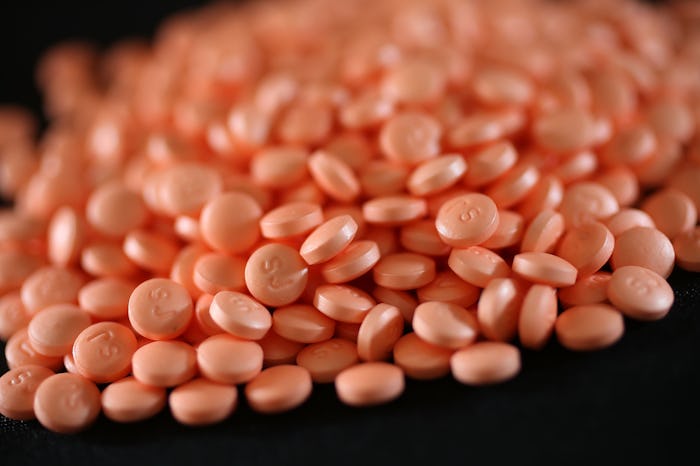Life

Preeclampsia Risks Could Be Reduced Using This Household Item
Taking an aspirin or two to deal with a headache or muscle pains can be such a relief. For pregnant women, taking small doses could both relieve these tensions and prevent something even more concerning. A new study has found that using aspirin during pregnancy could prevent preeclampsia, a complication that affects between 3 and 5 percent of expectant mother in the United States, though it's still important to ask your doctor about it first.
Mothers and doctors a like have long trusted small doses of aspirin to soothe pregnancy aches, and this latest finding — that it could also prevent preeclampsia, a condition involving the presence of protein in the urine and elevated blood pressure during pregnancy — is further proof of its wondrous effects. The study, conducted by researchers at the University of Exeter, found that administering a low-dose of aspirin each night before bed during the first trimester led to a 62 percent reduction in pre-term preeclampsia, and a reduction of participants giving birth before 37 weeks of pregnancy.
Preeclampsia is diagnosed around 20 weeks of pregnancy, according to Everyday Health. Some of the severe symptoms include headaches, nausea, and vomiting, which can be managed, but it also can come with major risks. If it is not addressed, preeclampsia can damage the placenta and result in pre-term birth and a low birth weight for the baby. In some rare cases, preeclampsia can result in the death of the mother or baby. Every year in the United States, according to The Daily Beast, 300,000 pregnant or postpartum women develop preeclampsia.
Participants in the study took 150 mg aspirin nightly between 11 to 14 weeks of pregnancy up until 36 weeks. It is important to note that the dosage is pretty low and expecting mothers should pay extra close attention to what is in their medicine cabinet before taking their dose. A single tablet of regular strength adult aspirin contains 325 mg, versus a tablet of low dose adult aspirin or children's aspirin which contains 81 mg.
"This extensive study is definitive proof that women can take simple measures in the first trimester of pregnancy to significantly reduce the chances of getting preeclampsia," Professor Kyrpos Nicolades, Director of Harris Birthright Research Centre for Fetal Medicine at Kings College London and Chairman of the Fetal Medicine Foundation told Science Daily.
Preeclampsia is almost impossible to prevent, according to Parenting, but taking this measure to reduce the risks could help those who have a family history of preeclampsia. Expecting mothers, according to Fit Pregnancy, should still consult with their doctors before taking their nightly aspirin, of course, but this could mean major things in terms of advancing pregnancy health.